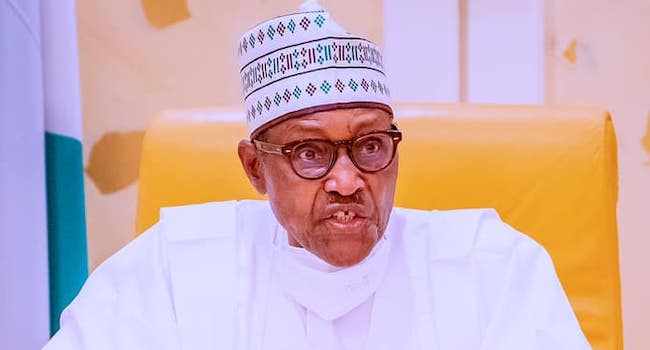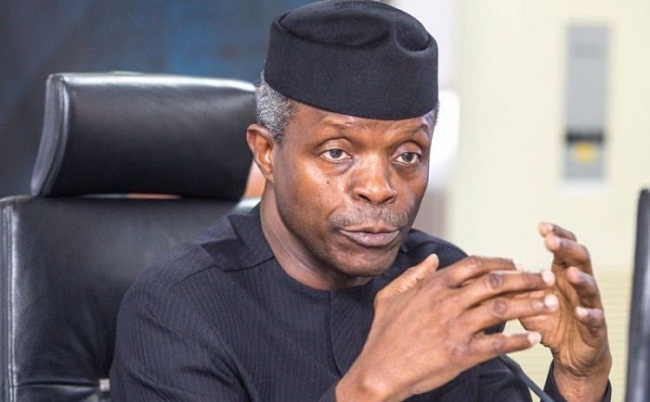Aso Rock Watch
ASO ROCK WATCH: Buhari’s claim on govt achievements. Two other talking points

President Muhammadu Buhari boasted last week that his administration was Nigeria’s best since the country returned to democratic rule in 1999.
Buhari’s declaration has dominated public discourse with many Nigerians criticizing the President’s attempt to pull wool over their faces with the outrageous claim on his government’s performance in the last six years.
We tracked two other stories that emanated from the seat of power last week for your reading delight.
Buhari’s claim on govt’s achievements
President Buhari declared in his independence anniversary broadcast on October 1 that the trio of former Presidents Olusegun Obasanjo, late Umaru Musa Yar’Adua, and Goodluck Jonathan cannot match the unprecedented success he has recorded in the last six years.
He said: “A lot has been achieved in the last six years on many fronts; in infrastructure, social care, governance, Nigeria’s image and influence in Africa, and the international community.
“But critics misdiagnose incremental progress to stagnation. Since coming to power, this administration has tackled our problems head-on despite the meagre resources. No government since 1999 has done what we have done in six years to put Nigeria back on track.”
While the Buhari administration deserves a pat on the back for its efforts at fixing Nigeria’s infrastructure, the country’s worst insecurity since the civil war of the late 60s, and the crippling economy have been the signpost of the former military ruler’s reign in the world’s most populous black nation.
Though some of the problems predates the current administration, the issues have degenerated to the extent that Nigeria is now regarded as the poverty capital of the world with over 70 percent of the country’s population living below $1 a day.
With 33 percent of the country’s population currently out of jobs, Nigeria has one of the highest unemployment rates in the world while criminal elements including the Boko Haram insurgents, bandits, and kidnappers hold sway in North-East, North-West and Southern parts of the country.
We can go on and on, but the signs are there to show that all is not well with the country that once prided itself as a giant of Africa.
Instead of beating his chest and proclaiming his administration as the country’s best in the last 22 years, the President should demonstrate to Nigerians that he has the political will to tackle the current insecurity by moving decisively against bandits and other criminals pillaging communities in many parts of the country.
The President should also focus more on improving the nation’s economy before he completes his tenure in 2023.
Osinbajo’s positive outlook
Despite Nigeria’s challenges, Vice President Yemi Osinbajo has remained upbeat that the country would continue to be Africa’s shining light.
The Vice President, who addressed the congregation at an inter-denomination church service held in Abuja on September 26 to mark Nigeria’s 61st independent anniversary, said: “We have since become the most educated and most entrepreneurial nation in Africa. 10 of our 36 states have larger economies than major African countries.
“But today, yet again, our path has been dogged by conflicts: religious and ethnic, economic challenges, insurgencies and banditry, much darkness, many valleys, many horns.”
At a time when Nigerians continue to groan over insecurity, poor economy, bad governance, and other problems, Osinbajo’s recourse to an inspirational talk to lift the mood of Nigerians was not a bad idea.
But the question is how long will this approach work the magic on the dispirited citizens?
The current state of the nation requires concerted efforts by the leaders to regain the trust of the citizens who have become disillusioned by the government that promised so much but offered little.
READ ALSO: ASO ROCK WATCH: Is President Buhari listening? Two other talking points
Beyond Osinbajo’s attempt to psych up Nigerians, what Nigeria requires at this time is a quality leadership that will free the citizens from the stranglehold of poverty and insecurity that has held them captive for more than six years.
Wild claims on successes of ESP?
Vice President Yemi Osinbajo declared on September 28 that through the Economic Sustainability Plan (ESP), the Federal Government had salvaged over one million jobs and prevented 150,000 small businesses from closing shops over the COVID-19 pandemic.
Osinbajo, who at a United Nations High-Level Forum on Jobs and Social Protection meeting in Abuja, said: “The ESP also had a Survival Fund which gave payroll support to small businesses in manufacturing and services as well as to artisans and transporters.
“We have also been able to save up to one million jobs and prevented the close-down of at least 150,000 small businesses.”
Although the ESP is a flagship intervention programme of President Buhari’s administration, there are doubts that the programme has impacted on Nigerians.
The government has continued to release figures on the success of the programme, though yet unverified by any independent body outside of the government.
Worse still, there are claims that many Nigerians, particularly in the South, have not been touched by the programme. This gap calls for the Vice President to look inwards and see how the ESP will impact all Nigerians.
Join the conversation
Support Ripples Nigeria, hold up solutions journalism
Balanced, fearless journalism driven by data comes at huge financial costs.
As a media platform, we hold leadership accountable and will not trade the right to press freedom and free speech for a piece of cake.
If you like what we do, and are ready to uphold solutions journalism, kindly donate to the Ripples Nigeria cause.
Your support would help to ensure that citizens and institutions continue to have free access to credible and reliable information for societal development.



























